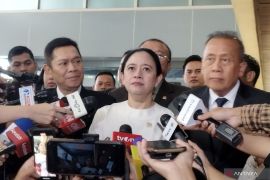(We have a) New baseline for the macro-fiscal (policy). The COVID-19 pandemic has established a new macro-fiscal (baseline). Macro fiscal (performance) is viewed from four aspects, namely the tax ratio, primary balance, deficit, and debt ratioJakarta (ANTARA) - The COVID-19 pandemic has affected the country's macro-fiscal policy as it has established a new baseline, head of the Finance Ministry's Center for State Budget Policy, Fiscal Policy Agency, Ubaidi Socheh, said.
“(We have a) New baseline for the macro-fiscal (policy). The COVID-19 pandemic has established a new macro-fiscal (baseline). Macro fiscal (performance) is viewed from four aspects, namely the tax ratio, primary balance, deficit, and debt ratio,” Socheh said at an online discussion here on Tuesday.
The pandemic has put severe pressure on the economy, impacting the state revenue, as a result of commodity price fluctuations in the international market, he noted.
In such a situation, he continued, the tax sector has to create incentives to provide stimulus for the economy to keep up industrial and trade activities.
The tax ratio is projected to reach 7.9 percent of the Gross Domestic Product (GDP) in 2020, and increase to 8.18 percent in 2021, with the acceleration of the economic recovery program, Socheh said.
“Pressures on the tax sector have come from two issues, first, the economic condition, and second, the responsibility to give incentive to (add) stimulus (to) the economy,” he added.
The pandemic has also affected the primary deficit, which has increased to 4.27 percent in 2020, and is expected to decline to 3.58 percent in 2021.
Earlier, the government had targeted the primary deficit and made efforts to move it to the positive zone, as it had already recorded a deficit of 0.08 percent in 2018 and 0.44 percent in 2019.
"Primary balance, actually we hoped that it could move toward the positive zone from 2018 and 2019," Socheh remarked.
The new baseline for macro-fiscal policy can also be seen in the widening of the budget deficit to 6.34 percent of the GDP, or Rp1,039.2 trillion, as stipulated in Presidential Decree no. 72/2020, from the earlier target of 3 percent of the GDP, with state revenue continuing to decline, while spending for COVID-19 handling increased.
The increased budget deficit has caused an increase in the debt-to-GDP ratio, which has reached 37.6 percent in 2020, compared to 30.18 percent in 2019.
"In 2021, with 5.7 percent deficit to the GDP, the debt (to GDP) ratio would be 41.3 percent," he said, adding that this would affect fiscal consolidation in future.
The government would have to lower the deficit to at least 3 percent of the GDP in 2023, he noted. (INE)
Related news: Indonesia orders 50 mln doses of AstraZeneca's COVID-19 vaccine
Related news: COVID-19 handling measures must prioritize 12 districts, cities: govt
EDITED BY INE
Translator: Astrid F Habibah, Sri Haryati
Editor: Fardah Assegaf
Copyright © ANTARA 2020












